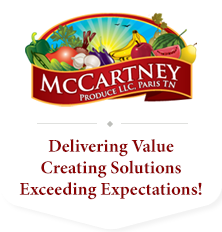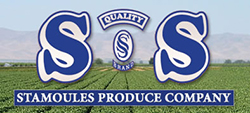In last month’s column, we came down hard on the assumptions many in agriculture make about educating consumers. While we’re certainly in favor of sharing our story with those who care about where their food comes from and who produces it, the dialogue needs to be two-way — and we put that into practice.
Recently, Markon shared center stage with the Alliance for Food and Farming (AFF) for our third annual Produce Safety “Facts, Not Fears” media tour.
Registered dietitians, health and nutrition journalists and influencers were invited to our growing fields and processing facilities in Salinas, Calif., to engage with farmers, scientists and chefs in three days of conversations about the issues our guests care most about.
The end game is progress toward earning consumer trust, which we believe starts with listening to consumers and other stakeholders, acknowledging and respecting their concerns about produce production and sharing best practices and how we’re addressing their concerns without being defensive. It’s a way of communicating worth practicing on your neighbors and colleagues at work.
We’re not “educating” tour participants as much as they are educating us.
Consumers and other stakeholders are making food decisions based on what they care about. They may value sustainable practices and treatment of labor or hold concerns about pesticide residues or GMOs. While our priorities have focused on providing facts (thus the reason this media tour is called “Facts, Not Fears”), we recognize that a growing number of consumers make food decisions based on personal values even more than scientific facts, meaning we need to address both.
This year’s tour guests contribute to publications including: The Washington Post, The Los Angeles Times, Shape magazine, CNN, Today’s Dietitian, U.S. News and World Report, Huffington Post, and Glamour, among others. After three years, Markon and the AFF now boast 23 tour alumni.
Since participating in this tour, our alumni have featured AFF information in podcasts, social media posts, interviews and articles in major media outlets (most recently Food Network), provided guest blogs and partnered with us on presentations about the safety of organic and conventional produce and the importance of eating more produce every day.
At its core, the tour is about building relationships, sharing what we do and talking with each other. Over the past three years, it is clear the tour is much less about “education” and more about dialogue and arming media and other influencers with relevant information on behalf of the produce industry — and it’s not the only such effort.
Earlier this month, the Produce for Better Health Foundation introduced the Fruit and Vegetable Ambassador in Action. PBH is calling this new program a “best in class” network to help inspire and motivate Americans to enjoy more fruits and vegetables daily.
At the end of the day, the outreach efforts by the AFF and PBH can be magnified by the produce industry itself by following their activities, sharing their content and information, and creating synergy resulting in a bigger “army of influencers.” The end result will be not just agriculture “telling its story,” but rather a variety of influencers engaging in a compelling and authentic dialogue.
Tim York is CEO of Salinas, Calif.-based Markon Cooperative.
Related
Telling our story again and again
Markon, AFF host Facts, Not Fears Produce Safety tour
Field, facility tours fight fear with facts














